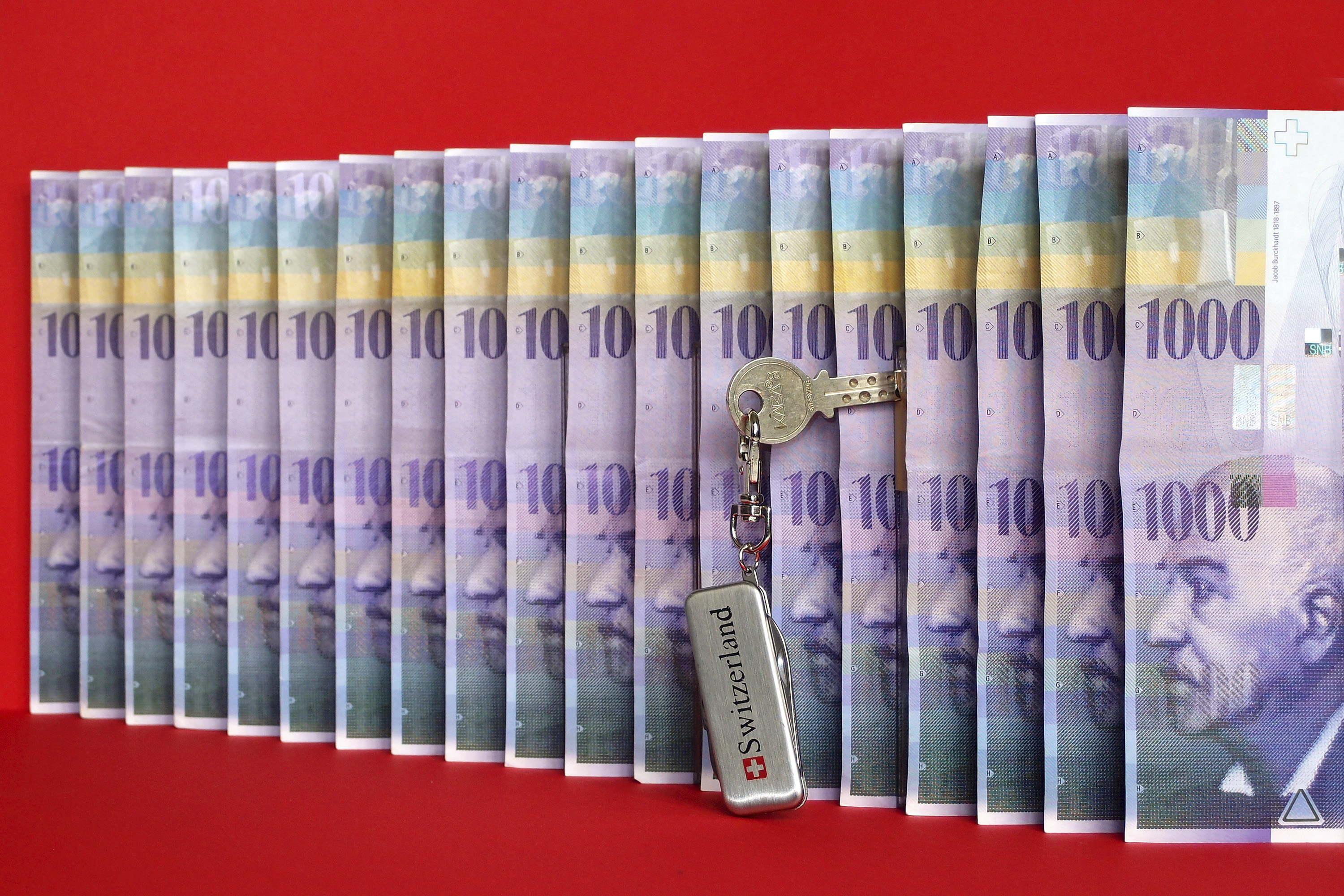Clean money plan greeted with scepticism

Government plans to extend due diligence requirements of banks and improve assistance on international tax matters have been greeted with scepticism by the Swiss press.
The government announced on Wednesday that it had mandated the finance ministry to prepare concrete measures by September in a bid to strengthen Switzerland’s financial centre, which is facing sustained pressure by several countries, including the United States.
Finance Minister Eveline Widmer-Schlumpf said the cabinet had agreed on three tenets, including upgrading due diligence rules to prevent banks accepting untaxed assets. Besides these additional duties for banks, their clients would also be required to sign a declaration that they had fulfilled all tax obligations in their home countries.
But newspapers based in the key financial centre of Zurich denounced the plan as vague and ineffectual.
“As regards giving the Swiss financial centre breathing space, these efforts should not be overvalued for several reasons,” the Neue Zürcher Zeitung wrote. “This will bring only a little relief in the tax conflict with the United States … that will play out on another level. As for fixing past irregularities, self-declaration will not solve anything either.”
The Tages-Anzeiger also derided the plan: “As for concrete details, the clean money strategy of the government could not be more vague”.
Meanwhile the Basler Zeitung said the international community would be sceptical of any plan in which the financial sector was responsible for enforcing honesty.
“The idea of self-declaration is far from being sufficient to calm the suspicions of foreign tax authorities. Even less so because Eveline Widmer-Schlumpf wants to leave it up to the banks to ensure the implementation and monitoring of such a scheme.”
French-language dailies Le Temps and La Tribune de Genève were less severe, with both commenting that the government was hardening its line on the issue.
“Symbolically, it’s a strong gesture,” said La Tribune de Genève. “It is not insignificant to require a client to sign a certificate of honesty. One, it will force potential fraudsters to think twice. Two, the document can be used as proof later on if the client has lied and is tracked down by tax authorities in their own country.”
Credible and competitive
Widmer-Schlumpf told reporters the government wanted a strategy which would ensure a “credible, tax compliant and competitive Swiss financial centre.” She said the cabinet continued to refuse the adoption of an automatic exchange of information, notably demanded by the European Union.
“We are convinced that this strategy allows us to live up to a legitimate demand of bank clients for privacy and to the equally legitimate demands of foreign countries to tax their citizens,” she told a news conference.
She said the aim was to settle past tax problems with individual countries through amended deals and a withholding tax to ensure that investment income and capital gains of Swiss bank clients living abroad are taxed in line with international regulations.
At least 11 Swiss banks are under investigation by Washington in the wake of a 2009 accord to transfer data concerning around 4,500 American bank clients suspected of violating US tax laws.
Approval of tax deals is also pending with neighbouring Germany and Britain.
Mixed reaction
Wednesday’s government policy statement met mixed reaction from political parties.
The Social Democrats said they welcomed the cabinet policy of “cleaning up the financial centre”, force banks to adopt a clean money strategy and reject untaxed money. The group said its most of its parliamentarians would now support the US tax deal.
The centre-right Radical Party, traditionally close to business interests, praised the government for taking more time to present concrete measures and refusing to cave in to pressure from the left.
The rightwing Swiss People’s Party, which has staunchly defended banking secrecy, criticised the government’s plans, accusing it of overloading the banks with further administrative duties even though they are not part of the tax system.
The centre-right Christian Democrats had already announced last week they would support the government’s strategy. The party’s spokeswoman said on Wednesday it was a step in the right direction, but further details were needed.
The Swiss Bankers Association said it was satisfied the government was sticking with a strategy it had already outlined and that it was still refusing the automatic exchange of client data.
But it called for any new regulations to be applied to all financial intermediaries and not just the banks.
However, the non-governmental organisation Berne Declaration, which works for equitable relations between the industrialised world and developing countries, slammed the strategy as mere window dressing for a domestic audience.
The cherished Swiss banking confidentiality laws have been under constant attack since the financial crisis of 2008-9.
In March 2009, Switzerland was forced to concede enhanced information exchange and renegotiate a host of double taxation agreements to get off an OECD black list of tax havens.
Also in 2009, UBS admitted to aiding and abetting US tax evaders and had to pay a hefty fine. The Swiss government was subsequently forced to hand over the names of nearly 4,500 US clients of UBS to the US authorities.
Several countries, including Britain, Italy, the US and Germany, offered tax amnesties in 2009 and 2010 to give citizens the chance to come clean about tax evasion.
The search for tax cheats was helped by the illegal sale of Swiss bank client data by a whistleblower. Germany and France were the main purchasers of the controversial data CDs, but information was passed on to other countries.
The US is currently pursuing its clampdown on other Swiss banks. Credit Suisse was recently informed that it was under investigation, and several other banks, including canton-owned enterprises, are thought to have also fallen under the spotlight.
(With input from Samuel Jaberg)

In compliance with the JTI standards
More: SWI swissinfo.ch certified by the Journalism Trust Initiative




You can find an overview of ongoing debates with our journalists here. Please join us!
If you want to start a conversation about a topic raised in this article or want to report factual errors, email us at english@swissinfo.ch.